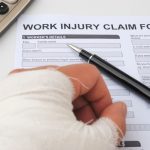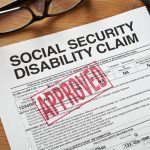How to Safely Enjoy Fourth of July Fireworks and Celebrations
The Fourth of July weekend can be one of the deadliest of the year, and fireworks are one obvious potential source of danger. According to the US Consumer Product Safety Commission, more than 10,000 people are injured each year by fireworks, with 67% of those injuries occurring during the weeks before and after July 4. In 2014, 11 people were even killed by fireworks-related injuries; at least two of the deaths were not the users of the fireworks, so remember that you may be endangering other through improperly handling fireworks. Firecrackers and exploding fireworks are obvious culprits of harm, but 19% of fireworks injuries in 2014 were from sparklers, so don’t underestimate the potential for damage based on size or price.
Although “fire” is part of the word, it’s easy to underestimate the potential for serious property damage from fireworks. In 2011, more than 17,000 fires were started by fireworks, causing more than $32 million in property damage according to the National Fire Protection Agency (NFPA).
These injuries and damages are preventable, so keep in mind basic safety guidelines. Remember that fireworks contain explosives, so start with safe storage: keep fireworks in their original packaging, away from heat or flame, and away from wet or damp areas.
Also be sure to follow fundamental tips for fireworks safety that remain the same from year to year:
- Make sure fireworks are legal in your area before buying them or setting them off, and never try to make your own.
- Don’t allow young children to light or play with fireworks (15% of injuries each year are to children under the age of nine).
- Never try to re-light a dud.
- Keep a bucket of water nearby in case of accidents. Soak spent fireworks and ones that didn’t fully ignite.
- Don’t light fireworks from your hand (or any other body part).
The NFPA even goes so far as to recommend foregoing the use of fireworks at home and instead only enjoying displays put on by professionals. If you do decide to light fireworks at home, keep in mind the potential dangers and follow some of the basic safety precautions above to avoid harm to yourself, others, or nearby property.
Of course, fireworks aren’t the only danger around July 4. During this time of celebration, car crashes and injuries from drunk, impaired, and distracted driving also rise significantly. Practice safe driving in all types of vehicles, whether on the land or water. And if the worse should happen and you are injured this Fourth of July holiday because of the recklessness of someone else, contact George Malliaros for a free consultation and to receive professional legal advice about your best course of action.
References:
Fireworks. (2015). National Fire Protection Association. Retrieved from http://www.nfpa.org/safety-information/for-consumers/seasonal/fireworks
Fireworks information center (2014). US Consumer Product Safety Commission. Retrieved from http://www.cpsc.gov/en/Safety-Education/Safety-Education-Centers/Fireworks/
Safe fireworks storage. (2015). UK Firework Review. Retrieved from http://www.firework-review.org.uk/safe-fireworks-storage/
Safety Tips. (n.d.). National Council on Fireworks Safety. Retrieved from http://www.fireworkssafety.org/safety-tips/





